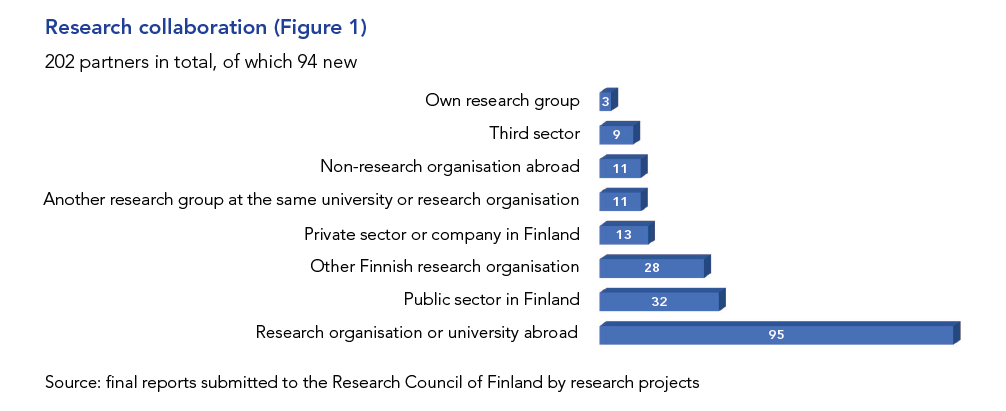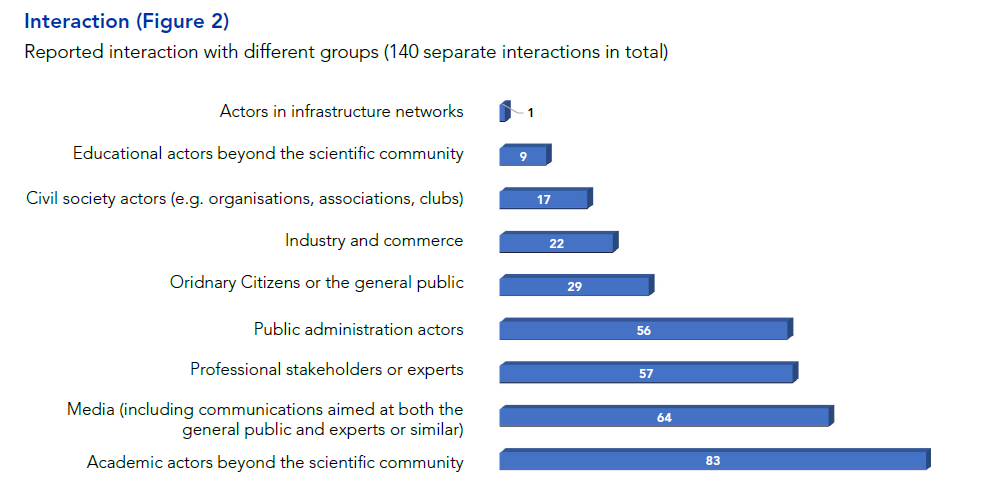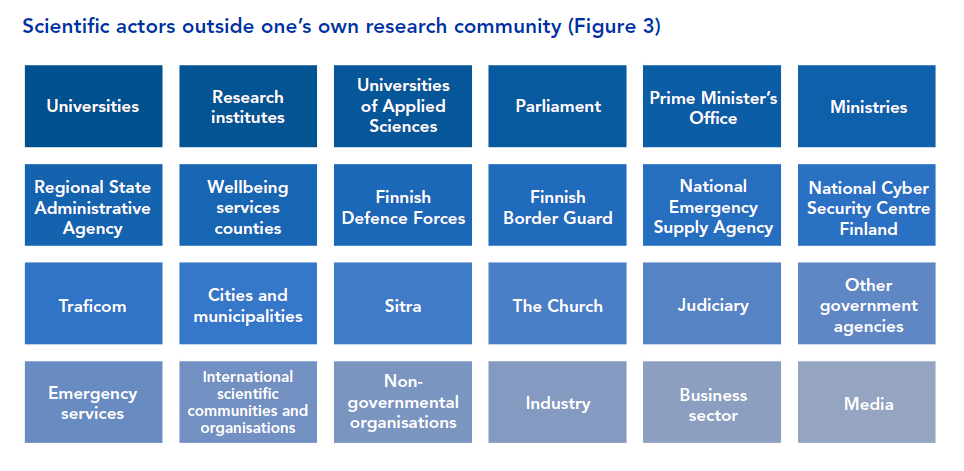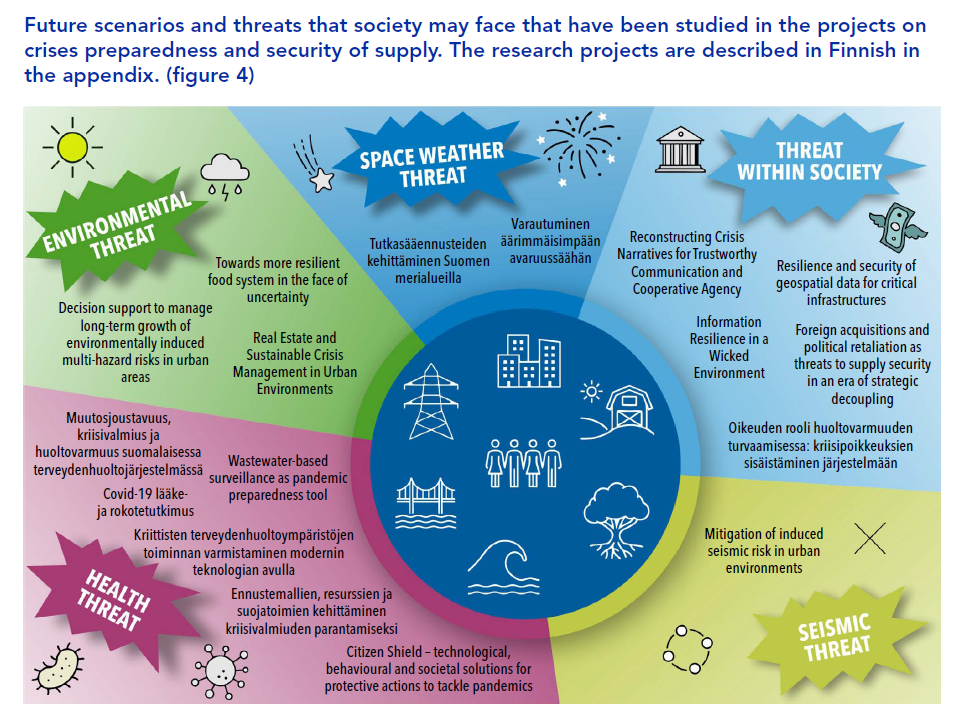Research strengthens crisis preparedness
Extensive long-term research creates the capacity to tackle sudden crises. According to the report by the Research Council of Finland regarding research projects on the theme, multidisciplinary collaboration and interaction between researchers and societal actors play a key role in strengthening crisis preparedness and security of supply.
The Covid-19 pandemic has highlighted the importance of high-quality science and expertise to welfare and society.
A strong research foundation, along with the utilisation capabilities based on it, will give us the readiness to quickly respond to future societal threats and crises that are currently still unknown.
Research creates competence and the ability to respond to challenges, thus improving society’s predictive capabilities and resilience, that is, the ability to adapt to and cope with transition.
The Research Council of Finland (RCF) has provided extensive funding for research related to pandemics and other crises as well as ways to prepare for them. The RCF’s RESILIENCE programme has provided funding for research aimed at developing vaccines and medicines, protecting society, anticipating crises and minimising their impacts. The programme has allowed the RCF to support high-quality, innovative and effective research, promote national and international research collaboration and strengthen the societal impact of research in the field. In total, nearly 40 million euros has been granted for these themes. Additionally, the Strategic Research Council (SRC) has provided 15 million euros in funding under the Pandemics as a Societal Challenge (PANDEMICS) research programme, which addresses this theme.
Interaction creates impact
As per its strategy, the RCF provides funding for responsible and bold research that benefits both Finland and the wider world. In addition to scientific breakthroughs, a key research goal is to strengthen high-level expertise. The scientific results and expertise of the RESILIENCE programme have created a strong foundation for the broader societal impact of research, because research projects have also sought extensive and diverse interaction.
In 2020, the RCF granted special funding for crisis preparedness and security of supply research to 16 research projects. The Finnish Government had allocated 20 million euros for this purpose.
Based on the final project reports, projects supported with this special funding had over three years collaborated with more than 200 different research partners (Figure 1). Almost half of them were new partners with whom no collaboration had taken place before. Most of the partners were foreign research organisations, while in Finland, the public sector was the most important partner.

Figure 1. Partners reported by projects supported by special funding related to research on crisis preparedness and security of supply. The bars indicate the number of partners.
The research projects have also reported on the interactions included in the research work. Interaction means activities to exchange knowledge and views on, for example, the research topic, the wording of the research question or the (preliminary) research results and their utilisation. Typically, the other party is a stakeholder that is interested in the research content but lacks the interest, expertise or resources to carry out the research themselves.

Figure 2. Crisis preparedness and security of supply projects have interacted with actors from approximately 140 different sectors over three years.
Scientific actors outside the research community are the most significant group with which the researchers have interacted. Many projects have also actively sought to interact with policymakers. Researchers have attended parliamentary hearings and participated in expert work by ministries, Regional State Administrative Agencies and wellbeing services counties. They have also interacted with, for example, the Finnish Defence Forces and the National Emergency Supply Agency. There has also been interaction with NGOs, industry, the business sector and the media.

Figure 3. Interaction partners as per project reports.
Collaboration key to bolstering crisis preparedness and security of supply
The crisis preparedness and security of supply projects funded by the RCF have examined a variety of potential future scenarios and threats faced by society. The research projects have shown that both the Covid-19 pandemic and other societal crises are multidimensional, affecting more than one agency, field of research or demographic. Multidisciplinary collaboration and interaction between researchers and different societal actors is therefore crucial to guaranteeing crisis preparedness and security of supply.
The importance of collaboration is also highlighted in a report released by the SRC-funded PANDEMICS programme. The objective of the report is to provide researched information for societal needs and decision-making. The RCF has also promoted research collaboration aimed at strengthening crisis preparedness by initiating the joint Nordic programme Welfare among Children and Young People in the Post-Pandemic Nordics. The programme is managed by NordForsk, a research body under the Nordic Council of Ministers. All of these measures will also create a strong foundation of researched information for the Finnish Presidency of the Nordic Council of Ministers in 2025. The theme of the Presidency, as chosen by the Government, is Nordic societal safety as well as children and young people.

Figure 4. Potential future scenarios and threats faced by society highlighted in crisis preparedness and security of supply research projects.
Read more:
- Research strengthens crisis preparedness. RESILIENCE Academy programme, final report (PDF)
- Researched crisis information – research projects funded by the Research Council of Finland through the special funding application process for crisis preparedness and security of supply research (report available only in Finnish)
See also (reports available only in Finnish):
- Special funding related to the Covid-19 pandemic and limiting its effects – spring 2021 research project status update
- Special funding for Covid-19 vaccines and pharmaceutical development – research project status update for autumn 2021
- Lessons learned from the Covid-19 pandemic: Towards better crisis preparedness and crisis management
Previous blog posts on the topic:
- Results of special Covid-19-themed funding: research strengthens capacity to face future crises
- How did the focus of Covid-19 research change from 2020 to 2021?
- Nordic collaboration seeks new research on effects of Covid-19 on children and young people’s welfare
- How have Finnish researchers reacted to the Covid-19 pandemic and its consequences?